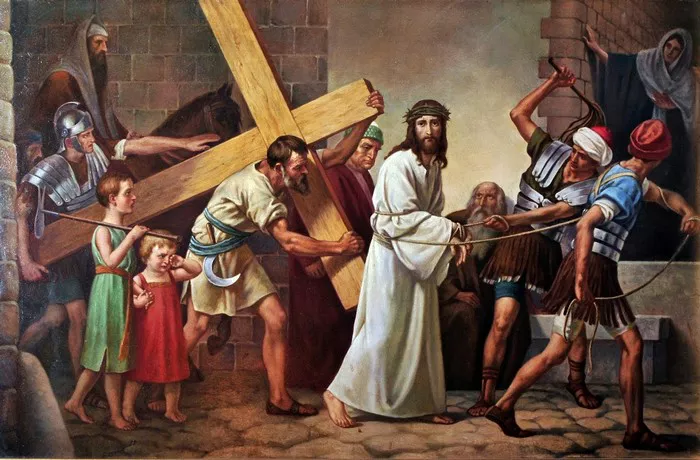The question of why God allowed slavery in the book of Exodus is one that has perplexed theologians, scholars, and believers for centuries. It is a topic that requires careful examination of the historical, cultural, and theological contexts of the time. In this article, we will explore the nature of slavery in ancient Israel, the laws regulating it, and the theological implications of God’s allowance of such a practice within the framework of the Exodus narrative.
Historical and Cultural Context
To understand why God allowed slavery in Exodus, we must first consider the historical and cultural context of the ancient Near East. Slavery was a common institution across many ancient civilizations, including Egypt, Mesopotamia, and Canaan. It was an integral part of the social and economic structure, often functioning differently from the chattel slavery most familiar to modern readers.
In ancient Israel, slavery could take several forms, including debt slavery, where individuals sold themselves or their family members to pay off debts; and chattel slavery, where captives of war or foreigners were enslaved. The practice of slavery in Israel, however, was distinct from the harsher forms seen in other cultures. The Mosaic Law introduced regulations to ensure the humane treatment of slaves, reflecting a higher ethical standard.
Slavery in Exodus
The book of Exodus provides a narrative framework within which the Israelites’ experience of slavery in Egypt and their subsequent liberation by God is recounted. This narrative serves as a foundational story for the identity of Israel as a people chosen by God. The harsh conditions of their slavery in Egypt are depicted as unjust and inhumane, setting the stage for God’s intervention.
Exodus 21: The Laws Concerning Slaves
In Exodus 21, we find specific laws regulating slavery among the Israelites. These laws include provisions for the fair treatment of slaves, such as:
Limited Term of Service: Hebrew slaves were to serve for six years and be released in the seventh year (Exodus 21:2). This regulation ensured that slavery was not a perpetual condition for Hebrew individuals.
Protection of Female Slaves: Female slaves had protections against mistreatment, and if a man took a female slave as a concubine or wife, she was to be treated with the same rights as a free woman (Exodus 21:7-11).
Fair Treatment and Compensation: Masters who caused the death or serious injury of their slaves were to be punished (Exodus 21:20-21, 26-27). This was a significant step towards recognizing the humanity and rights of slaves.
These laws demonstrate that while slavery was permitted, it was regulated to prevent abuse and to promote a sense of justice and humanity.
Theological Perspectives
Understanding why God allowed slavery in Exodus requires a theological perspective that considers the broader narrative of God’s relationship with Israel and His redemptive purposes.
Human Sinfulness and Divine Regulation
One way to approach this issue is to recognize that the allowance of slavery was a concession to human sinfulness and the social realities of the time. Similar to how Jesus explained Moses‘ allowance of divorce due to the hardness of human hearts (Matthew 19:8), the regulations regarding slavery can be seen as a way to mitigate the worst aspects of an already existing institution.
God’s laws concerning slavery in Exodus were designed to limit its duration and ensure humane treatment, reflecting a movement towards greater justice and mercy. This approach shows God working within the cultural context of the time to bring about a higher moral standard.
Liberation and Redemption
The story of Exodus is fundamentally a narrative of liberation and redemption. The Israelites’ deliverance from slavery in Egypt is a central theme, symbolizing God’s power to free His people from oppression. This act of divine intervention establishes a pattern of liberation that runs throughout the Bible.
God’s deliverance of Israel from slavery is also a foreshadowing of the ultimate liberation from sin and death through Jesus Christ. In this sense, the allowance of slavery and the subsequent regulations can be seen as part of a larger redemptive arc, where God is progressively revealing His justice and mercy.
See Also: What Is the Month of Aviv in Exodus?
Ethical Implications for Today
While the historical and theological context helps us understand why God allowed slavery in Exodus, it also raises important ethical questions for today. How should we interpret and apply these ancient texts in a modern context where slavery is universally condemned?
Interpreting Ancient Texts
Interpreting the laws of Exodus requires careful hermeneutics that consider the original context and purpose of the text. It is important to distinguish between descriptive and prescriptive passages in the Bible. While the laws in Exodus describe how slavery was regulated in ancient Israel, they do not prescribe or endorse slavery for all times and cultures.
The Abolitionist Legacy
The principles of justice, mercy, and human dignity found in the Mosaic Law have inspired many movements for social justice, including the abolition of slavery. Christian abolitionists in the 18th and 19th centuries drew on biblical themes of liberation and equality to argue against the institution of slavery.
Modern Applications
Today, the church continues to be called to stand against all forms of oppression and injustice. The biblical principles of justice, mercy, and the inherent worth of every human being compel Christians to work towards the eradication of modern-day slavery and human trafficking.
Conclusion
The question of why God allowed slavery in Exodus is complex and multifaceted. It involves understanding the historical and cultural context of ancient Israel, the specific regulations given in the Mosaic Law, and the broader theological narrative of redemption and liberation. While slavery was permitted and regulated in the ancient context, the biblical text also contains seeds of justice and mercy that point towards a higher ethical standard. As we seek to apply these ancient texts to our modern context, we are reminded of God’s ultimate desire for freedom, justice, and the dignity of every human being.


